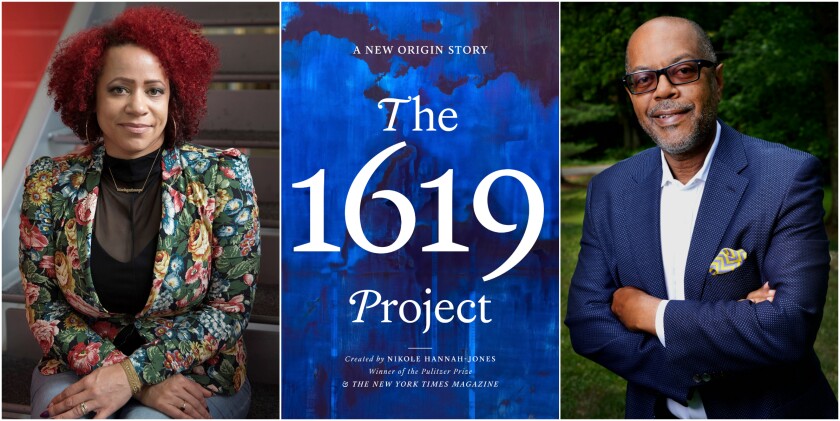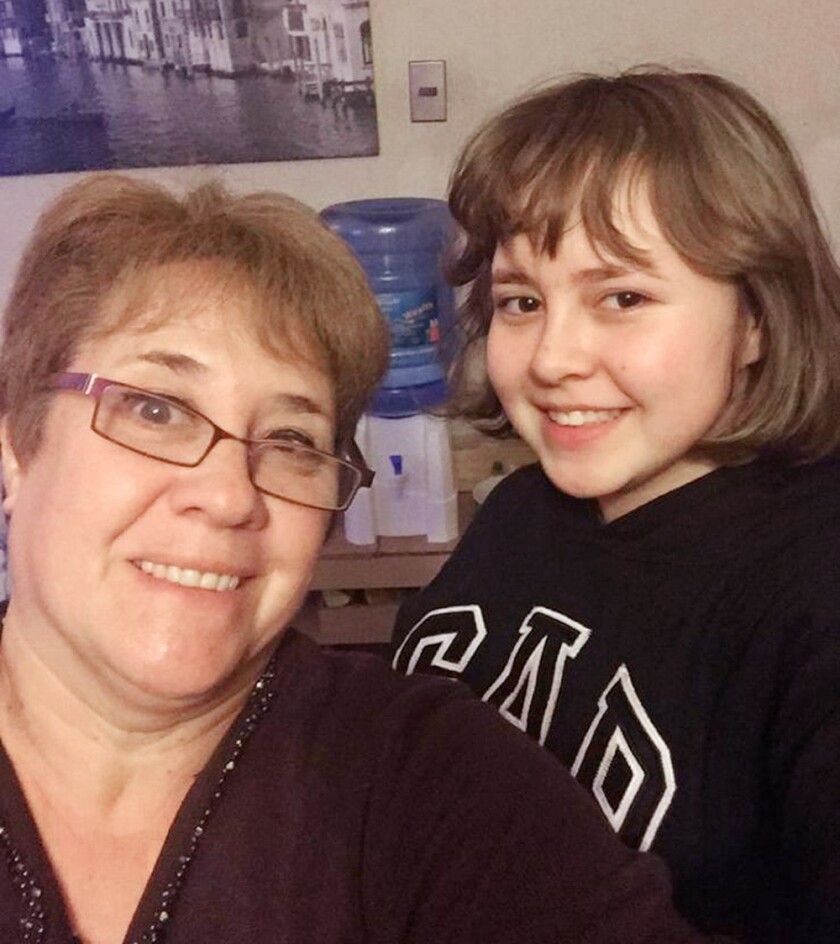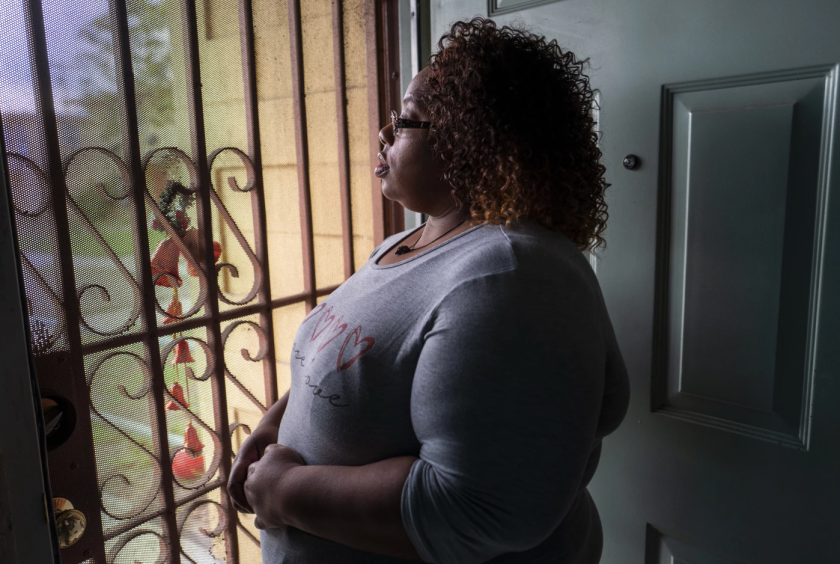Good morning, and welcome to the Essential California newsletter. It's Wednesday, Dec. 29. I'm Justin Ray, with my last newsletter of the year.
Needless to say, the world has a lot of uncertainty: coronavirus variants, ever-changing guidance from the Centers for Disease Control and Prevention, supply chain issues, political polarization and so much more. The unsettling developments can leave people craving happiness and comfort.
For me, that has meant nostalgia. I desire sounds, images and visuals that take me back to less complicated times. Lately I have been enjoying deep listening sessions with Seba Jun, more commonly known by his stage name, Nujabes (which, if you haven't picked up, is his real name backward).
The music maker defined my early 20s. The Japanese record producer, DJ and audio engineer was (and is) influential in hip-hop, known for his distinct style of beat-making infused with jazz and soul. He gained many fans due to his contributions to the cult anime series "Samurai Champloo."
One easy way of knowing when I'm experiencing heavy emotions is when his music begins to occupy my life. Tracks like "luv (sic.) pt 3," "Feather" and "Spiritual State" have seen me through many horrible moments. His mellow beats and wholesome vibe create such happiness within me. But there is a less-magical alchemy involved: My brother raised me on hip-hop, and my dad was a jazz musician. The math just makes sense.
But for the longest time, I'll admit, I felt guilty revisiting his music. Sometimes I felt like I was avoiding reality and failing to live in the moment. His music was a placebo at best and an avoidance strategy at worst.
Nostalgia has faced this criticism before. Psychology Today warns that, when taken to an extreme, nostalgia can "lead to unhelpful behaviors and negative consequences" and "prevent us from utilizing more helpful coping strategies."
Nostalgia, derived from the Greek words for "return" and "suffering," has been defined as "the yearning to return to one's place of origin," Ding-Guo Gao, a psychologist at Sun Yat-Sen University in Guangdong, China, told The Times in 2008.
I concede that there is a feeling of suffering that comes with nostalgia: knowing that you will never be able to return to those times — those less complicated times.
But I no longer feel guilty about revisiting Nujabes' music. That is because, during every tough time I weathered with him, I made it through. Yes, it is a coping mechanism, but it is one that has managed to bring me to the other side.
My take is, making it is making it. It doesn't matter how you do it; it just matters that it gets done. As the world takes us on this crazy journey, maybe we need to revisit that movie we've seen a hundred times. Maybe we will return to that record we've experienced ad nauseam. Whatever it is, I want to encourage you not to feel guilty for making yourself feel better. That is part of life — finding the things that help you go on.
I was thinking about the fragility of life when I had this change of heart. There was the girl who was killed shortly before Christmas in North Hollywood, and the lives lost during the pandemic. It all made me feel emotional, and I started to listen to those familiar tracks when I remembered that Nujabes himself died unexpectedly, at 36, in 2010 after a traffic accident.
People all over the world have mourned him. An online forum has thousands of comments reflecting on his legacy. More commonly, people post on YouTube about his impact. There, one person wrote: "Nujabes isn't dead. You just need to click play."
In my case, nostalgia is keeping two people going forward.
What is on your go-to nostalgia jukebox? Let us know! Email Justin.Ray@latimes.com with the subject line "nostalgia jukebox," and we'll include in a future newsletter.
And now, here's what's happening across California:
Note: Some of the sites we link to may limit the number of stories you can access without subscribing.
L.A. STORIES
From Barack Obama to Billie Jean King, L.A. Times Book Club looks back. In 2020, the Los Angeles Times Book Club had many guests who covered topics of race, politics, gender, social justice, friendship and more. Our shared reads ranged from a former president's memoir to a tennis champion's story of coming of age and coming out to Ron Howard's nostalgic tale of growing up on television. We recently published a video looking back at the big names and important moments we experienced. Los Angeles Times

Nikole Hannah-Jones, creator of "The 1619 Project," joined the Los Angeles Times Book Club for a conversation with Times executive editor Kevin Merida. (James Estrin / One World / Kirk McKoy / Los Angeles Times)
Our daily news podcast
If you're a fan of this newsletter, you'll love our daily podcast "The Times," hosted every weekday by columnist Gustavo Arellano, along with reporters from across our newsroom. Go beyond the headlines. Download and listen on our App, subscribe on Apple Podcasts and follow on Spotify.
POLITICS AND GOVERNMENT
The border reopening in November to nonessential travel has given rise to exceedingly long lines that could stifle local commerce and economic recovery. According to the Smart Border Coalition, approximately 120,000 passenger vehicles, 63,000 pedestrians and 6,000 trucks cross between San Diego and Tijuana every day. Waits have been unpredictable during the pandemic, with essential workers sometimes having to spend the night in their cars at the border to make sure they could make it to work on time. As of Thursday, border wait times regularly surpassed two hours in passenger vehicle lanes, according to Customs and Border Protection. San Diego Union Tribune
CRIME, COURTS AND POLICING
The New York Times has an important story about paid medical experts who testify in trials about officers accused of excessive force. The experts face accusations of "slanting science, ignoring inconvenient facts and dangerously emboldening police officers to act aggressively." The story begins with an expert witness who testified in a Fresno case that police techniques such as facedown restraints, stun gun shocks and some neck holds do not kill people. The emergency medicine doctor in San Diego is "an integral part of a small but influential cadre of scientists, lawyers, physicians and other police experts whose research and testimony is almost always used to absolve officers of blame for deaths." New York Times
A 'shy girl' from Chile, shot by LAPD while shopping, died in her mother's arms. Valentina Orellana-Peralta came to the U.S. from Chile with her mother, Soledad Peralta, about six months ago to visit her older sister, who worked in a restaurant. "Valentina was a shy girl in Chile, but everything was turning out well for her in the U.S.," her aunt Carolina Peralta, 51, said in an interview with the Los Angeles Times. "She was catching up with English and being more outgoing. She was happy to be with her older sister." The Times found out more about Valentina and how her family will remember her. Meanwhile, her parents spoke Tuesday in front of LAPD headquarters in downtown L.A. Los Angeles Times

Valentina Peralta, right, and her mother, Soledad Peralta. Valentina was killed by Los Angeles police when they opened fire on a suspect who was allegedly assaulting someone Dec. 23 in a North Hollywood clothing store. (Carolina Peralta)
HEALTH AND THE ENVIRONMENT
In South Los Angeles and surrounding areas like Compton, mental disorders mostly go untreated until they have caused irreparable damage. Many of them are inextricably tied to other calamities that befall people who live in L.A.'s poorest neighborhoods at disproportionate rates. Even before COVID-19 hit, Latino and Black Angelenos were dealing with more poverty, addiction, unemployment, chronic disease, homelessness, disability and childhood trauma, all of which worsen mental conditions and further feed those underlying problems. Behavioral health practitioners fear the pandemic has accelerated this spiral in a way they will be coping with for decades to come. Los Angeles Times

Courtney, at her home in Watts, felt better after starting therapy and medication but battled painful social stigma. (Francine Orr / Los Angeles Times)
Omicron is 'going to get worse before it gets better,' as California hospitalizations rise. The number of COVID-19 patients hospitalized in California over the weekend reached levels not seen in months. Los Angeles County has seen a 30% bump in COVID-19 hospitalizations since last week; in Orange County, the patient count swelled by nearly 45%. Meanwhile, the rapid spread of the Omicron variant caused major airline interruptions and sent throngs to testing sites. Officials said they expect Omicron's spread to worsen in the coming weeks, with President Biden promising that the federal government will do all it can to assist states facing surges in coronavirus cases. Los Angeles Times
CALIFORNIA CULTURE
Mariposa-area child orphaned after parents die in separate tragedies. On Sunday, Andrew Trujillo, his girlfriend and their respective children were driving outside Yosemite National Park when, it appears, he lost control of the vehicle. Trujillo, father of a 2-year-old named Drew, suffered fatal injuries. The incident happened a little over a year after Drew lost his mother, Stacy Tara Trujillo, to suicide. A GoFundMe account is raising funds for Drew's expenses. Fresno Bee
A Los Angeles woman is facing a federal assault charge after she allegedly punched and spit on a man aboard a Delta Air Lines flight over an argument about masking. Patricia Cornwall was detained Thursday at Hartsfield-Jackson Atlanta International Airport after passengers told authorities she had caused a disturbance on a flight from Tampa, Fla., according to the Atlanta Police Department. The man involved told investigators that the maskless woman, who mockingly compared herself to Rosa Parks and told him to put on his mask as he was eating, also spit at his face and head, according to a criminal complaint. Cornwall declined to comment Tuesday. SF Gate
Free online games
Get our free daily crossword puzzle, sudoku, word search and arcade games in our new game center at latimes.com/games.
CALIFORNIA ALMANAC
Los Angeles: 52 San Diego: Rainy 56 San Francisco: Rainy 49 San Jose: Rainy 51 Fresno: Rainy 48 Sacramento: Rainy 44. I can't believe it did it too.
AND FINALLY
Today's California memory is from David Ruduch:
As youngsters in the late '40s and early '50s, my friends and I would walk or cycle from our Harper Oakwood neighborhood to explore and play at the astounding castle on the hill on the north side of Sunset Boulevard at Sweetzer that we believed was used in a scene in "The Wizard of Oz." It wasn't fenced, and the fact that we were trespassing made it spookier, scarier and even more thrilling. We expected to see the flying monkeys at every turn.
If you have a memory or story about the Golden State, share it with us. (Please keep your story to 100 words.)
Please let us know what we can do to make this newsletter more useful to you. Send comments to essentialcalifornia@latimes.com.
No comments:
Post a Comment